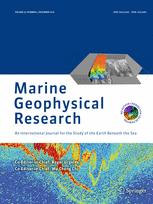 A 2016 paper has been retracted at the request of a company that provides geoscience solutions because the authors—who are employees of the company—included proprietary information and didn’t obtain proper permission.
A 2016 paper has been retracted at the request of a company that provides geoscience solutions because the authors—who are employees of the company—included proprietary information and didn’t obtain proper permission.
Often in extenuating circumstances such as publishing something without permission, the article is taken offline. But this article, which according to the retraction notice “contains information, data and intellectual property belonging to the company and its client,” remains available. What’s more, the authors seem to think they had the company’s okay to publish.
Here’s the complete retraction notice for “High resolution seismic imaging of complex structures: a case study of the South China Sea data” published by Marine Geophysical Research:
This article has been retracted at the request of CGG Services (Singapore) Pte Ltd.
No permission was granted for the submission of this paper, which contains information, data and intellectual property belonging to the company and its client. The authors failed to comply with the journal policy because no consent had been received for submission of the work. The online version of this article contains the full text of the retracted article as electronic supplementary material.
There’s another interesting element to this seemingly clear-cut case of publishing without consent: The authors seem to think they did have the go-ahead to publish. In the paper’s acknowledgments section, they “thank CGG company for their support and permission to publish the results.”
In the paper, the authors describe several approaches, algorithms and software that are proprietary to CGG, based in Signapore. For instance, they use CGG’s Geovation software to analyze data, as well as the CGG’s Q tomography and Q PSDM to build their model.
We’ve reached out to the three authors— Hao Zhang, Jun Wang, and Geping Fu—the company, as well and the journal editors for clarification on the consent issue, and whether keeping the paper available violates the intellectual property problems that got it retracted.
Update 2/10/17 9:42 a.m. eastern: We heard from a Springer spokesperson, who told us the paper has since been removed:
Due to an oversight, the full text of the retracted article remained online. It has now been removed.
The following sentence on the above page:
“The online version of this article contains the full text of the retracted article as electronic supplementary material”
is no longer correct, but unfortunately it cannot be deleted from the page.
Like Retraction Watch? Consider making a tax-deductible contribution to support our growth. You can also follow us on Twitter, like us on Facebook, add us to your RSS reader, sign up on our homepage for an email every time there’s a new post, or subscribe to our new daily digest. Click here to review our Comments Policy. For a sneak peek at what we’re working on, click here.